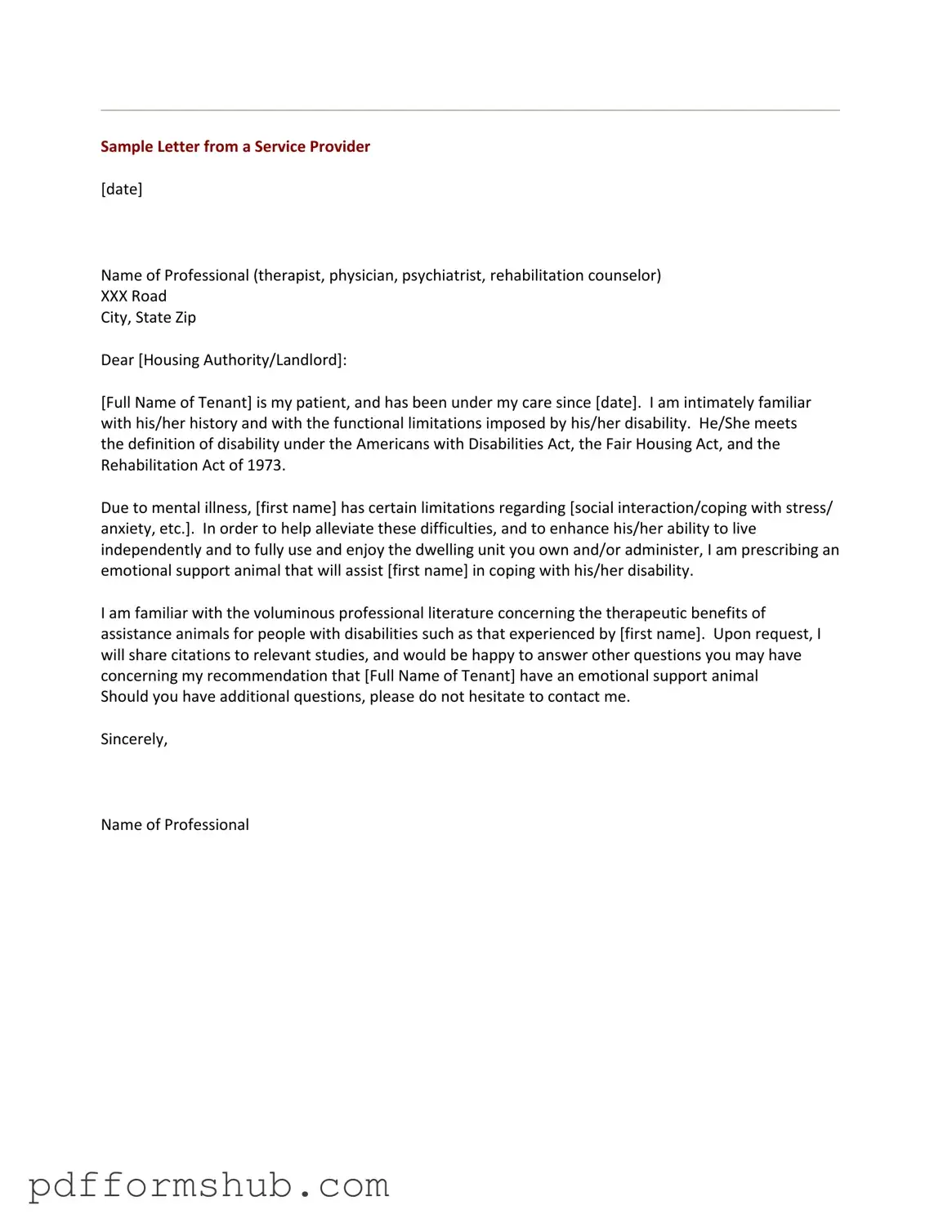Fill in Your Emotional Support Animal Letter Form
An Emotional Support Animal Letter is a document that certifies an individual's need for an emotional support animal to alleviate symptoms of a mental health condition. This letter, typically issued by a licensed mental health professional, serves as a crucial tool for individuals seeking to gain access to housing or travel with their support animal. If you believe you could benefit from such a letter, consider filling out the form by clicking the button below.
Customize Form

Fill in Your Emotional Support Animal Letter Form
Customize Form

Customize Form
or
Free PDF Form
Short deadline? Complete this form now
Complete Emotional Support Animal Letter online without printing hassles.